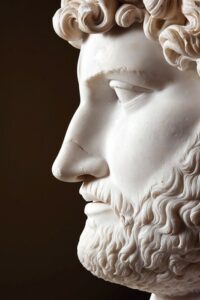Campaign to reinstate Hadrian’s Wall.…?
Do It Without Delay!
Within this small island of Great Britain our idea of community is changing as two very distinct, and, of late, acrimonious communities deal with a referendum vote on Scottish independence. Strangely it is only in recent days that the media have understood this and have start interviewing people not only in Scotland but in England, Wales and N. Ireland After all doesn’t the union of Great Britain belong to all these nations as well? So if it is to be broken up into small pieces why is it only Scottish voters who should have an opinion (and a vote) on this?
Love & Hate — War & Peace
Arguments made by residents of England include
- The Scots already have it easy with higher public spending than the UK average, free prescriptions and no university fees
- Why should Scotland be entitled to all the oil in the North Sea?
- And of course, why should an independent Scotland be allowed our British pound?
It seems that most Brits outside of Scotland want Scotland to stay in the union; after all Scots have a reputation as a fun-loving, likeable race of people. However things quickly turn and, should they choose to leave us, it seems most Brits would just as quickly say “good riddance” eg see this recent poll
On the other hand, from the Scots’ perspective, we see in Scotland a people with a very distinct culture and history, a stunningly beautiful land, and despite a devolved Scottish Parliament a profound feeling of remoteness from the capital and Parliament in London. As well as economic betterment Scots want to re-discover and assert their uniquely Scottish identity. And no one can blame them for that.
When identity becomes everything
But this idea of “our own identity” being more important than anything needs to be understood and handled with care. In extreme cases it has become the cause of suffering on a dreadful scale in parts of the world including the genocide of Tutsi/Hutu ethnic cleansing in Rwanda, the Serb/Croat war that preceded the break-up of Yugoslavia, and present day tribalism in parts of the Middle East. Indeed, ever since the division of ancient Israel and its demise at the hands of foreign powers, we see even today Israel immersed in a seemingly permanent conflict to re-establish an identity denied it by others. Of course all of these conflicts are a very long way from modern Britain in terms of distance and culture. “They couldn’t possibly happen here…. they are not really relevant”. I agree — but we should also remember that in all of these remote situations, that’s also what the people there thought at the time.
And of course we can look much closer to home and consider Northern Ireland. That was also about identity – ethnic and religious identity. Many of us grew up with wallpaper of an atrocity a week in the news. A mortar in a pub, a dirty bomb in a shopping centre, another mother murdered in front of her family ….. and of course in the words of Philip Yancey “….to every atrocity it seems there had to be an equal and opposite atrocity.”
The delicate and hard won peace that exists today in Northern Ireland is a testament to the grace of individuals such as Gordon Wilson and the Women for Peace, all of whom lost sons and daughters through the Northern Ireland tragedy, but refused to seek revenge. They realised there was something at stake that was even more important than revenge, identity or independence, and that is the value of life itself. And grace of this magnitude can be contagious. Today the peace in N. Ireland is certainly fragile but it is certainly peace. N. Ireland also enjoys higher than average public spending but it is well worth it if it helps to hold people together even in small ways.
The reality is that, depending on how this referendum plays out, we could find that the impression of the friendly highlander quickly becomes tarnished. That Scottish talent and business south of the border becomes resented. And if there is a scuffle over who exactly owns North Sea oil or who takes on existing national debt, this easily becomes prejudice and discrimination.
Paul’s plea in his letter to the church in Galatia (Turkey), was directed to two communities from two different cultures: Jews and non-Jews (or Gentiles) for whom identity was paramount. His plea was not to lose your identity, but to find a common, deeper identity. He wrote: “So in Christ Jesus you are all children of God through faith ….. There is neither Jew nor Gentile. There is neither slave nor free. There is neither male nor female, for you are all one in Christ Jesus”.
And re-instating Hadrian’s Wall?
The Roman emperor Hadrian built this fortified wall across the entire width of England around AD 122. It was a formidable defence 10 feet wide and 20 feet high and the parts remaining today are a UNESCO World Heritage site. Its purpose was simple: keep out the barbarians, the wild men of Northern England and Scotland, in order to “keep intact the empire”
Of course my suggestion is tongue in cheek, — just kidding — but my guess is that, in a volatile emotive and sometimes bitter campaign for independence, it could actually receive popular support.
If you found this blog to your liking try Propaganda Pride and Prejudice, or in complete contrast Who Is My Neighbour?




Reinstating Hadrian s wall is the best thing if Scotland wish to be independent from the rest of the UK and Scotland can be independent as much as they wish So I am for voting in reinstating the wall.
Sadly we often only seem to be able to define our own identities ‘over and against’ someone else, rather than ‘alongside and with’, which creates false and unhelpful divisions. Whilst I am fiercely ‘for’ self-determination, I also think we are actually ‘better together’ but only when we genuinely seek to preserve and respect diversity within community.
Yes it is sad that individual and nationalistic causes strike a deeper chord within us than community — as we have seen countless times. Your idea of having an identity that is defined “alongside and with” another’s identity is something we need to learn. Thanks Jane.